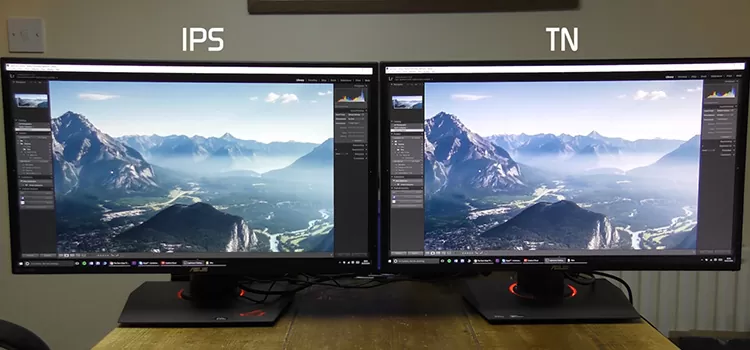TN Display Introduction:
TN or Twisted Nematic displays are one of the oldest and most commonly used display technologies. They are known for their fast response times, high refresh rates, and low input lag, which make them ideal for gamers and fast-paced applications. However, TN displays have a limited viewing angle and relatively poor color reproduction, which can result in washed-out or distorted images when viewed from off-center angles.
IPS Display Introduction:
IPS or In-Plane Switching displays are a newer and more advanced display technology. They are known for their excellent color reproduction, wide viewing angles, and superior contrast ratios, which make them ideal for professionals who require accurate color representation. However, IPS displays generally have slower response times and higher input lag than TN displays, which can result in motion blur and input lag in fast-paced games and applications.
What is the main difference between TN and IPS?
The primary difference between TN and IPS panels is in their viewing angles and color reproduction. TN panels have a narrow viewing angle and less accurate color reproduction compared to IPS panels, which have a wider viewing angle and more accurate color reproduction.
Which one is better for gaming?
TN panels are generally considered better for gaming due to their faster response times and higher refresh rates. However, IPS panels are catching up in these areas, and many gamers prefer IPS panels for their better visual quality.
Which one is better for photo and video editing?
IPS panels are generally considered better for photo and video editing due to their more accurate color reproduction and wider viewing angles. TN panels can have issues with color shift when viewed from an angle, which can make accurate color editing difficult.
Which one is cheaper?
TN panels are generally less expensive than IPS panels due to their simpler construction and lower production costs.
Can you tell the difference between TN and IPS?
Yes, there are noticeable differences between TN and IPS panels in terms of color accuracy, viewing angles, and overall visual quality. However, the extent to which these differences are noticeable depends on the specific monitor and the individual’s visual acuity.
